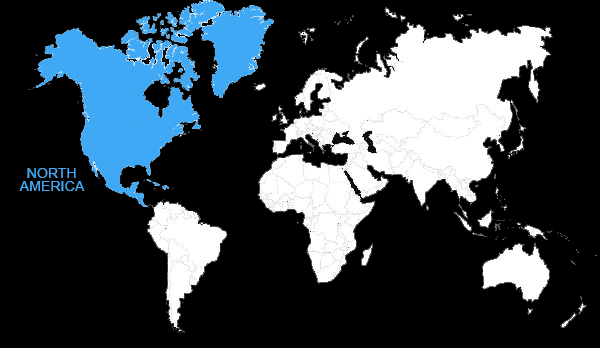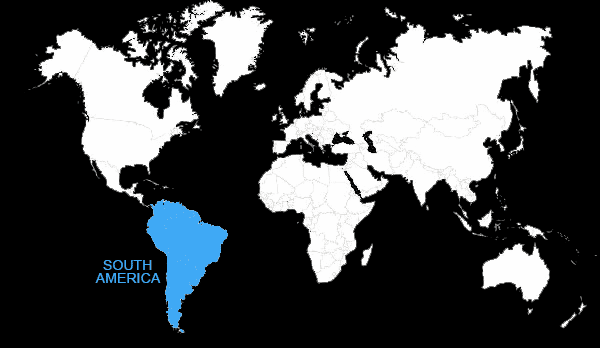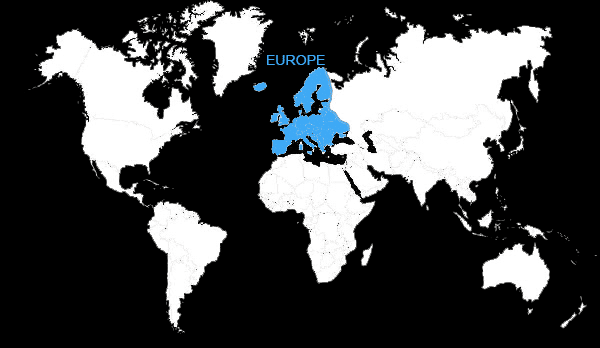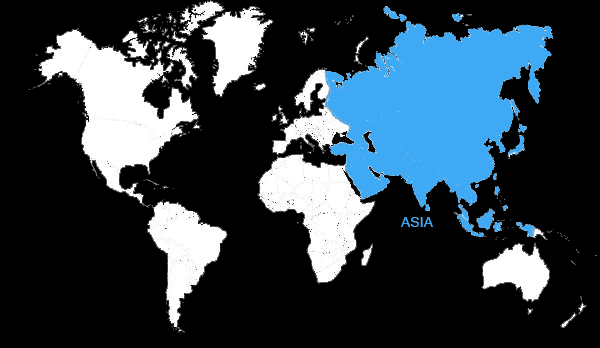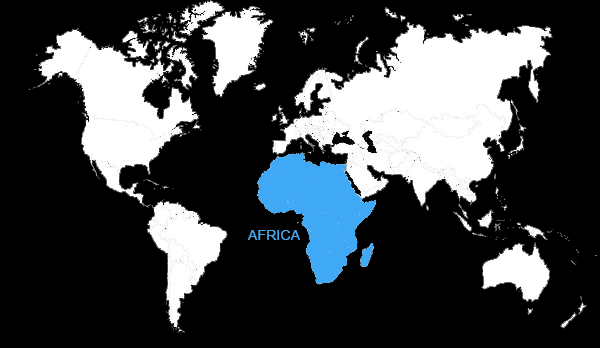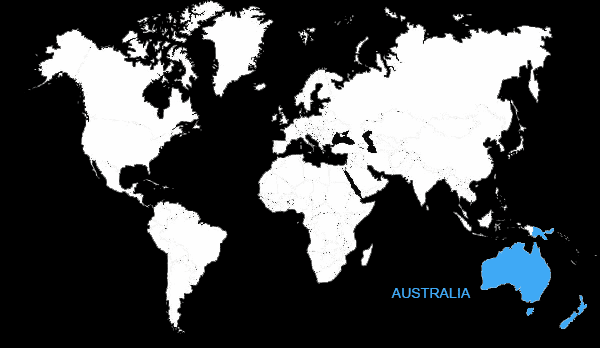Rangers FC Tryouts
Rangers FC is a Scottish professional football club based in the Govan district of Glasgow, Scotland. The club currently plays in the Scottish Premiership, the country’s highest football league in Scotland.

Rangers FC Youth Development System
With former Soccer Academy players Leon King and Jodi McLeary making the first team, could your child be the next success story?
Our group of experienced coaches will take your child’s game to the next level as they develop new skills in and outside of football.
Rangers FC Academy

We have a variety of term-time football classes for boys and girls.
- Baby Bears – 18 months to 3 years
- Broxi Bears – 3 to 5 years
- Future Bears – 5 years and above
- Advanced – 5 years and above
- Elite – Invitation only
As well as sessions for outfield players, we have goalkeeping-specific classes as well as girls-only sessions.
We have a range of Soccer Academy term-time classes in Scotland and Northern Ireland, find your nearest class using the links below.
Rangers FC Summer Holiday Classes
Building on the success of previous years, Rangers Soccer Academy continues to inspire youngsters to train and play like the first team.
Rangers Soccer Academy Summer Holiday Classes are the ideal way for children to spend their school break.
Participants will start the morning with technical based drills, followed by an afternoon focusing on game related practices before finishing the day with small sided games. Each day will follow two different technical themes that the drills and practices will be based around.
Not only will players make new friends, they’ll also be able to showcase their skills with coaches looking to identify players for our upcoming Elite Centres that are taking place after the summer break.
Our Summer Holiday Classes are available in both Scotland and Northern Ireland, use the links below to find your nearest class!
Study With Rangers Soccer Academy
New for 2021, Rangers Soccer Academy has partnered with UCS to enable students and student athletes to access University age provision within the inspirational environment of Ibrox Stadium.
UCS employed lecturers will deliver the academic content of the programme whilst students can utilise the club’s facilities and gain practical work experience across areas such as coaching, scouting, match analysis and life as an athlete.
- YEAR 1: HNC in Sport & Exercise Science
- YEAR 2: HND in Sport & Exercise Science
- YEAR 3: BSc in Sports Coaching
Find out more HERE
Baby Bear Centres
Baby Bear Centres are designed for pre-school children aged 18 months to 3 years old, this programme encourages both parent and child participation, working together in a sporting context as well as providing the opportunity for youngsters to take their very first steps in football.
These sessions incorporate the development of fundamental movement and motor skills, whilst having fun with themed adventures which are friendly, creative and educational.
Broxi Bear Centres
Broxi Bear Centres are for boys and girls who want to have fun whilst playing football.
The classes are a perfect platform for children to play fun games, make new friends and learn a host of new skills with a team of enthusiastic qualified Rangers coaches.
Kids’ favourite, Broxi Bear, will also make a guest appearance during each coaching block.
Rangers Soccer Centres
With new term-time venues added each week make sure you don’t miss out on a Soccer Centre near you.
Whether it is developing football skills, meeting new friends or getting out and exercising, Rangers Soccer Centres offer a wide range of opportunity for youngsters during term time.
There’s also our Advanced Soccer Centres for budding footballer’s who feel they are ready to progress to the next level and develop their technical skills and game awareness.
Players who demonstrate potential will be invited to the exclusive Elite Soccer Centre.
Elite Soccer Centres
Prove your talent and have the opportunity to progress to the Rangers Youth Academy.
Players who are viewed as having the ability to further develop their potential are specially selected by Rangers coaches and scouts, and invited to attend the Elite Soccer Centre at the Rangers Training Centre.
Players have the chance to progress from the Elite Soccer Centres to Rangers Youth Teams and to date 54 players have made this transition.
Club Development Centres
Our Club Development Centres are open to teams playing four-a-side, seven-a-side, or eleven-a-side and provides educational input for players and coaches alike.
Teams participating receive the following benefits:
- USE OF THE RANGERS TRAINING CENTRE
- COACHING SESSION
- HANDOUTS ON DIET AND NUTRITION
- AN EXCLUSIVE BEHIND THE SCENES TOUR OF THE RANGERS TRAINING CENTRE
Group Packages
Rangers Soccer Academy has a range of different options for groups, from birthday parties, to the amazing Training Centre and Matchday Experiences.
Give your child a birthday to remember with Rangers Soccer Schools! Rangers offers a great solution for parents who want to provide an unforgettable experience for their youngster’s special day.
The Training Centre Experience provides groups with the opportunity to replicate the training and preparation of a professional footballer.
Whereas the Matchday Experience will allow your players, coaches, parents and families the opportunity to immerse themselves in the matchday atmosphere.
Rangers International Soccer Academy
Rangers International Soccer Academy provides a range of bespoke football, educational and cultural development programmes for overseas groups and organisations both at home and abroad.
A team of Rangers coaches can host or visit your club to work with your players, coaches and staff to improve their performance, professionalism and enjoyment of the game, running Elite Player Development Camps, Recreational Camps or Coaching Clinics.

Our Coaching Clinics are an opportunity for coaches around the world to develop under the guidance of our SFA qualified staff at Rangers Football Club
We also offer a range of Team Tour options, including a Leisure Experience combinging a professional football club tour with an educational element and both Training Centre and Matchday Experiences.
Rangers Online Soccer Academy
RANGERS were delighted to announce the launch of the Rangers Online Academy in July 2020.
Initially announced in November 2019, work has been ongoing to populate the subscription-based online coaching resource with a wealth of training content for coaches and teams around the world.Click To Subscribe
Rangers FC Recruitment Trials
At the time of this writing, there are no official publishings on Rangers FC trials. Please come back at a later date while we monitor this club or click here to visit their official academy news page for the latest updates.

EXPLORE MORE CLUBS!
Explore more professional clubs by continent.
Rangers FC History
Moses McNeil and his brother Peter McNeil, together with Peter Campbell and William McBeath, established the Rangers in March 1872 after meeting at West End Park, which is now known as Kelvingrove Park. Moses and Peter McNeil were brothers. On Glasgow Green in May of that year, Rangers’ first encounter was a friendly contest against Callander, and it ended in a goalless draw. David Hill was another one of the original members. The club conducted its first annual meeting in the year 1873, during which staff members were elected. In the year 1876, Moses McNeil became the first player from Rangers to represent Scotland in an international match. This match was played against Wales. Rangers played in the Scottish Cup final in 1877, but they did not show up for the rematch after the first game ended in a draw. As a result, Vale of Leven was able to claim victory and take home the trophy. The next year, Rangers defeated Vale of Leven 2–1 to win the Glasgow Merchants Charity Cup. This victory was Rangers’ first major cup victory. In 1888, one year after the East End club was founded, the very first game ever played versus Celtic took place. During a friendly, Rangers were defeated by an opposition that was primarily made up of guest players from Hibernian. The final score was 5–2.
Rangers were one of the ten initial members of the Scottish Football League when it was founded during the 1890–1891 season. At the time, the club was playing its home games at the first Ibrox Stadium. On August 16, 1890, the club played in its first-ever league match, which ended in a victory over Heart of Midlothian by a score of 5–2. After ending tied for first place with Dumbarton, a play-off was held at Cathkin Park, and the result was a 2–2 tie. This was the first and only time in the competition’s history that the title was shared. The first time that Rangers have won the Scottish Cup was in 1894, when they defeated their rivals Celtic 3–1 in the championship game. Rangers had accomplished this feat by the turn of the 20th century, having won two league crowns and three Scottish Cups. [16][18][23][24] Rangers captured ten league titles during William Wilton’s tenure with the club, first as match secretary and subsequently as team manager.
Bill Struth was Rangers’ most successful manager. He took over as manager after William Wilton passed away in 1920, and he led the team to 14 league titles before the start of the Second World War. Bill Struth was Rangers’ most successful manager. Rangers’ victory against Celtic in the annual New Year’s Day Old Firm match on January 2, 1939 set a new record for the number of people that attended a match in the British league. The previous record had stood at 118,567. Struth was the manager of the club for 34 years until 1954, during which time he amassed the most trophies of any manager in the history of Scottish football. He won 18 league championships, 10 Scottish Cups, two League Cups, seven war-time championships, 19 Glasgow Cups, 17 Glasgow Merchant Charity Cups, and other war-time honors. Rangers defeated Celtic by a score of 8–1 in the Southern Football League while the wartime regional league system was in place. This was the greatest score that Rangers had ever earned against Celtic. Rangers were able to establish a new record during Struth’s reign, becoming the first club in Britain and the second club in Europe, after MTK Budapest, to win nine consecutive league championships in a row, beginning in the 1938–1939 season and continuing through the 1946–1947 season. This accomplishment occurred between the years 1938–1939 and 1946–1947.
Scot Symon continued Struth’s success by winning six league championships, five Scottish Cups, and four League Cups. In the 1963–64 season, which was the heyday of ‘Slim’ Jim Baxter, one of the club’s finest players, Scot Symon became the second manager to achieve the domestic treble.
Additionally, Rangers were defeated by the largest score in their history of the Old Firm, 7–1
In 1960, Rangers competed in the European Cup and advanced to the semifinals, when they were defeated by the German club Eintracht Frankfurt by a record aggregate score of 12–4 for a Scottish team.
In 1961, Rangers became the first team from the United Kingdom to compete in a European final when they faced off against Fiorentina in the Cup Winners’ Cup final. Despite their best efforts, Rangers were ultimately defeated by Fiorentina by a score of 4–1 on aggregate. In 1967, Bayern Munich defeated Rangers in the championship game of the same competition for a second time, this time by a single goal, after extra time.
The Ibrox disaster took place on January 2, 1971, when 66 people lost their life as a result of widespread crushing on a stairwell exit after the conclusion of an Old Firm game. An investigation came to the conclusion that the crush was most likely to have occurred 10 minutes after the final whistle and to have been caused by someone falling on the stairs. This was the conclusion reached by the investigation. [34] After the tragedy, a benefit match was held to collect money for the families of the victims. The match, which took place at Hampden and featured a combined squad from Rangers and Celtic facing a Scotland XI, was witnessed by 81,405 fans.
Rangers finally found success on the European scene in 1972, allowing them to move on from the tragedy that had befallen them the previous year. The European Cup Winners’ Cup was won by FC Barcelona after a 3–2 victory over Dynamo Moscow at the Nou Camp in Barcelona. The goals scored by Colin Stein and Willie Johnston helped FC Barcelona secure the victory. After pitch invasions by Rangers fans in response to the heavy-handed tactics of the Spanish police, most of whom had been brought in from outside of Catalonia, Captain John Greig received the trophy in a small room within the Nou Camp. The majority of the Spanish police had been brought in from outside of Catalonia. Because of the behavior of their supporters, Rangers were first given a one-year suspension from playing in Europe, but this was eventually reduced to two years.
The next season, the team participated in the very first European Super Cup, despite the fact that the match was officially recognized as Rangers’ centenary celebration match due to the suspension imposed by Europe. In January of 1973, the team faced off against the current holders of the European Cup, Ajax, who were also the ones who had initially presented the notion. Rangers were defeated by the Dutch team by an aggregate score of 6–3, as they were defeated at Ibrox by a score of 1–3 and in Amsterdam by a score of 3–2.
Rangers, who had previously been overshadowed by Jock Stein’s Celtic team, were able to reclaim their position of dominance under the direction of manager Jock Wallace and achieve remarkable success on the domestic front. Rangers won the Scottish Cup at Hampden in front of 122,714 fans in his first season in charge of the team, which also happened to be the club’s centennial season. In the 1974–75 season, Wallace guided the Rangers to their first League championship victory in 11 years. The following year, they won the treble, and Wallace led them to a historic victory once again in the 1977–78 season.
John Greig managed the team for a total of five years, however he was never able to replicate the success he had enjoyed as a player in his role as manager. Due to the fact that he was unable to win the league during his tenure, he was succeeded by Wallace, who came back in 1983. Wallace was unable to recreate the success of his first term in charge, and as a result, he was replaced by Graeme Souness in 1986. Wallace’s victory ratio was less than 50% during this time.
Rangers dominated their league from the 1988–1989 season all the way through the 1996–1997 season, winning the championship each and every year. This nine-in-a-row achievement brought them level with Celtic’s record, which they had set before to the formation of the Scottish Football League Premier Division. After the formation of the SFL Premier Division, teams in the division only played each other four times per season. Graeme Souness oversaw the club’s operations throughout the first three of these seasons, while Walter Smith was in charge for the final six of these campaigns.
Notable seasons include 1990–1991, which culminated in a last-day finale with Rangers securing a 2–0 victory at Ibrox over Aberdeen, who needed only a draw to secure the championship. Other notable seasons include 2004–2005, which culminated in a last-day finale with Rangers securing a 1–0 victory over Motherwell. A domestic treble of trophies as well as an extended run in the inaugural UEFA Champions League were highlights of the 1992–1993 season for the club. At one point during the competition, the club was only one goal away from claiming a spot in the championship game. [42]
On May 7, 1997, at Tannadice Park, Rangers defeated Dundee United by the margin of a single goal, securing their place as champions for the ninth season in a row.
In 1998, a Dutchman named Dick Advocaat was hired as the club’s first ever manager from a country other than the United States. Stalwarts from the Nine-in-a-Row era had moved on, thus Advocaat made significant investments in the team. These investments produced instant rewards, and they led the club to their sixth domestic triple. On May 2, 1999, a victory at Celtic Park by the score of three goals to zero clinched the league championship for the winning team. The team secured a domestic double with a 4–0 victory over Aberdeen in the Scottish Cup final, which led to them winning the league title for a second season in a row by a record-setting margin of 21 points. During their run in the Champions League, Rangers were victorious over Parma, who had previously won the UEFA Cup.
Rangers were unable to compete domestically against Celtic under new manager Martin O’Neill during Advocaat’s third season at the helm of the club. Even after making significant investments in the team, including the purchase of Tore Andre Flo for a club-record £12 million, achieving European success beyond the group stages of the Champions League was once again out of reach. In December 2001, Advocaat handed in his resignation as head coach of the team after a sluggish start to the next season. Alex McLeish was brought in to take over for him.
McLeish became the sixth Rangers manager to lead the team to a domestic triple during the 2002–2003 season, which was his first full campaign as manager.
The championship was won on goal difference after a thrilling final day victory over Dunfermline Athletic at Ibrox, winning Rangers’ 50th league title and making them the first team in the world to accomplish the accomplishment.
Significant debts in the neighborhood of £52 million were incurred by Rangers as a result of major expenditures that were approved by Chairman David Murray.
The increasing financial situation of the club caused many of the team’s best players to leave in the summer of 2003. As a result, the club did not win any trophies in the season that followed, which was only the second time this had happened since the 1985–1986 season.
Rangers were able to regain their previous level of success during the 2004–2005 season. This was made possible by a number of key signings, including Jean-Alain Boumsong, Dado Pro, and Nacho Novo, as well as the return of former captain Barry Ferguson, who had spent time in England playing for Blackburn Rovers.
The club’s victory in the league title was capped off with an exciting conclusion on the last day of competition. As a result of the unexpected turn of events, which saw Celtic lose to Motherwell at Fir Park and Rangers take the lead against Hibernian, the helicopter that was transporting the Scottish Premier League trophy was forced to make a U-turn and deliver the prize to the Easter Road ground in Leith rather than its original destination of Fir Park.
Rangers went a club record ten consecutive games without a victory between September and November, despite beginning the season as favorites to defend their championship title. This was the longest losing streak in the history of the club. In addition, during this time period, a 1–1 draw with Inter Milan propelled Rangers into the round of 16 of the Champions League, making them the first Scottish team to accomplish this since 1993. However, the club was eliminated by Villarreal on the away goals rule after losing the match. David Murray made the announcement that McLeish will be resigning from his position as manager at the conclusion of that particular season on February 9, 2006.
Frenchman After the 2005–2006 campaign, Paul Le Guen took over as manager, succeeding Alex McLeish. At the beginning of the season, we were knocked out of the League Cup in the first round, while Celtic built up a commanding lead at the top of the table. After being undefeated throughout their entire group stage of the UEFA Cup, Rangers made history by becoming the first Scottish team ever to advance to the round of 32 in the competition since the establishment of the group phase. On the other hand, it was revealed on January 4, 2007, that Le Guen had departed Rangers by mutual consent, despite allegations of conflict between the manager and captain Barry Ferguson. These allegations were made in light of the fact that Barry Ferguson was the captain.
On the 10th of January 2007, former manager Walter Smith resigned from his position as the manager of Scotland in order to return to his position as the manager of Ibrox, with Ally McCoist serving as his assistant.
Rangers competed in the UEFA Cup Final in Manchester in 2008, which was held there. Rangers competed in the UEFA Cup the season after they were demoted from the Champions League and played in that competition. The club advanced to the championship game by virtue of victories achieved along the route against Panathinaikos, Werder Bremen, Sporting Lisbon, and Fiorentina.
The Rangers were defeated by Zenit St. Petersburg in the championship game, which took place in Manchester. Dick Advocaat, a previous manager for the Rangers, was in charge of the team.
Riots broke out in Manchester in 2008 at the UEFA Cup Final as a result of the presence of an estimated 200,000 supporters who had traveled there for the event.
Rangers were eliminated from the UEFA Champions League by FBK Kaunas of Lithuania during the previous season, but they bounced back during the 2008–2009 campaign.
With a win of three goals to zero over Dundee United on the final day of the season, the club was able to clinch their 52nd league championship.
Additionally, Rangers successfully defended their title in the Scottish Cup by claiming victory over Falkirk in the championship game by a score of 1-0.
Rangers advanced to their sixth consecutive domestic final during the 2009–10 season. In the Scottish League Cup match against St. Mirren, the team overcame a two-men disadvantage due to red cards, and Kenny Miller scored a late goal that proved to be the game-winner to give Rangers the victory.
At Easter Road, a goal scored by Kyle Lafferty helped the team maintain their hold on the league championship crown with three matches still to play. Hibernian was defeated 1-0. Rangers successfully defended their League Cup title during Smith’s tenure as manager in the 2010–2011 season. Nikica Jelavi scored the game-winning goal in the extra period of Rangers’ victory over Celtic at Hampden. On the last day of the season, in Smith’s last match in charge of the club, a victory over Kilmarnock by a score of 5–1 was enough to clinch a third straight championship.
Ally McCoist took over for Walter Smith in June 2011, but Rangers were already eliminated from two European competitions before the end of August when the 2011–12 season began. Rangers were eliminated from the Champions League third round qualifying match against Malmo FF of Sweden and from the Europa League qualifying match against Maribor of Slovenia.
Rangers were able to remain undefeated through the first 15 games of the league season, propelling them to the top rank. Despite this, they were eliminated from the League Cup by Falkirk and from the Scottish Cup by Dundee United at Ibrox. On February 14, 2012, Rangers was put into administration, which resulted in the team being docked 10 points in accordance with the rules of the Scottish Premier League. Despite the fact that Rangers won the game 3–2 against Celtic at Ibrox on March 25, preventing Celtic from winning the championship, Rangers ultimately finished 20 points behind Celtic and in second place.
The Rangers Football Club plc (now renamed RFC 2012 plc) went through the process of liquidation on June 1, 2012, after spending the previous four months in administration due to an inability to come to an agreement with the company’s creditors about a CVA. The administrators were successful in selling the business and its assets to a new company called Sevco Scotland Ltd. (which would subsequently become known as The Rangers Football Club Ltd.), but the majority of the first-team players refused to transfer to the new club. The new firm was unable to obtain the transfer of Rangers’ prior place in the Scottish Premier League, but they were eventually allowed into the Scottish Football League. Rangers were granted associate status and relegated to the Third Division rather than the First Division, which was the goal of both the Scottish Premier League and the Scottish Football Association. Before the start of the 2012–13 season, the Scottish Football Association (SFA) gave its approval to the transfer of Rangers’ membership in exchange for the club’s acceptance of a number of conditions, one of which being a transfer ban lasting one year.
A very different Rangers team lined up for the first league match in the Third Division, though it secured a comfortable 5–1 victory over East Stirlingshire in front of a crowd that was a world record for a football match in a fourth tier league. This was because the majority of key Rangers players had refused to transfer to the new company.
Rangers kicked out their league season away from Ibrox with three consecutive draws before falling to Stirling Albion by a score of 1-0. At the time, Stirling Albion was the worst team in the entire country. In the third round of the Scottish Challenge Cup, Queen of the South defeated Rangers at Ibrox. In the quarterfinals of the Scottish League Cup, Inverness Caledonian Thistle defeated Rangers at home. as well as being eliminated by Dundee United in the fifth round of the Scottish Cup. Both against Queens Park (with an attendance of 49,463) and against Stirling Albion (with an attendance of 49,913), Rangers were able to break their own record for the highest crowd in a single game. On the 30th of March, Rangers earned the title of Third Division champions after playing Montrose to a scoreless draw.
The 2013–14 season started off to a great start for Rangers, who won all of their first 15 games in League One, before being held to a draw at home by Stranraer on Boxing Day 2013. Rangers’ only loss came in the first round of the League Cup on August 3, when they were upset by Forfar Athletic 2–1. Rangers won the League One championship on March 12, 2014, which earned them promotion to the second tier of Scottish football. They went on to finish the season undefeated in league play, which helped them capture the title. In addition, Rangers competed in the final of the Scottish Challenge Cup, which they ultimately lost to Raith Rovers, as well as the semi-final of the Scottish Cup, when they were defeated by Dundee United at Ibrox by a score of 3–1.
Rangers were given a tougher test during the 2014–15 season when they competed in the Scottish Championship. In the first half of the season, the club suffered defeats both at home and on the road against Hibernian, and Hearts, as well as a defeat on the road against Queen of the South. In the league, Rangers were unable to win against Alloa either at home or on the road. This was followed by a loss to Alloa in the semi-final of the Scottish Challenge Cup by a score of 3–2. In the face of growing criticism, McCoist sent in his resignation letter with the intention of serving out his full year-long notice term. However, he was placed on gardening leave instead, and Kenny McDowall took over in a caretaking capacity. Before he handed up his resignation in March of 2015, McDowall had only been in command for a total of three months. During his tenure as manager, the Rangers only had three victories to their name. After that, Rangers appointed Stuart McCall, a former player, as their third manager of the season to oversee the club for the remaining matches. Rangers achieved a third-place finish in the league when McCall was in charge, and they went on to compete in the Premiership play-off final, which they ultimately lost to Motherwell 6–1 on aggregate.
It was reported in June 2015 that Mark Warburton had been given the position of manager on a contract that would last for three years.
Rangers were able to end their four-year stay in the lower levels of Scottish football by winning the Scottish Championship in the 2015–16 season and earning automatic promotion to the Scottish Premiership. The club also competed in the final of the Scottish Cup in 2016, where they were defeated by Old Firm rivals Celtic in the semi-final match held at Hampden and ultimately fell to Hibernian in the championship match. Mark Warburton and David Weir resigned from their positions as managers of the Rangers first team on February 10, 2017, following a disappointing first half of the 2016–17 season. Graeme Murty was appointed as the caretaker manager of the Rangers first team. In the end, Pedro Caixinha was promoted to the role of permanent manager.
The Rangers started their first full season under Caixinha with one of the poorest results in their whole franchise’s history. Rangers were eliminated from the first qualifying round of the 2017–18 Europa League as they were defeated by Luxembourg minnows Progrès Niederkorn by a score of 2–1 on aggregate. The match was played at Ibrox Stadium, where Rangers earned a 1–0 win. In the history of European competition, Progrès had never before won a tie and had only ever scored one goal in the past. After such a poor beginning to the season, the team’s performance did not improve, as evidenced by results such as a home loss to Celtic in the league by a score of two goals to zero and a loss to Motherwell in the semi-final of the Scottish League Cup by the same scoreline. Caixinha was fired on October 26, a day after Kilmarnock scored an equalizer in the 95th minute at Ibrox to force Rangers into a 1–1 draw. Graeme Murty took over as interim manager again after Caixinha’s dismissal. The managerial tenure of the Portuguese player was referred to as “a terrible catastrophe from start to finish.”
Late in December, after an unsuccessful search for a more experienced manager, which included a failed attempt to appoint Aberdeen manager Derek McInnes, Murty was appointed to the role until the end of the season. During his interim spell, Murty had won back-to-back games against Aberdeen and also defeated Hibernian away from home.
Murty’s second stint as manager at the club came to an abrupt end on May 1, 2018, when he was fired after a 5–0 loss against Celtic, which culminated in Celtic winning their seventh consecutive league title. The loss led to Murty’s dismissal as manager. For the third year in a straight, the regular season concluded with Rangers finishing in third place, this time behind Celtic and Aberdeen.
On May 4, 2018, it was announced that Steven Gerrard, a former captain of both Liverpool and England, would take over as the new manager of Rangers on a deal that would last for four years. Rangers began Gerrard’s tenure with a good start, going undefeated in their first 12 games and securing a spot in the group stage of the UEFA Europa League as a result of their run of success. However, Rangers went on to lose to Celtic in the first Old Firm match of the season, and a month later, they were knocked out of the League Cup by Aberdeen. [Note: At Ibrox on December 29, Rangers overcame Celtic to hand Brendan Rodgers his first loss in 13 Old Firm matches. This victory over Celtic was Rangers’ first over Celtic since their triumph in the Scottish Cup back in April 2016, and it was their first league victory over Celtic since March of 2012. After defeating Rangers by a score of 2-0 in the Scottish Cup match that took place at Ibrox on March 12, 2019, Aberdeen eliminated Rangers from competition for a second time this season.
Rangers started the 2019–20 season by once again qualifying for the group stage of the UEFA Europa League. However, in the opening Old Firm match of the season on September 1, 2019, they were defeated by Celtic by a score of 2-0 at Ibrox. The following day, the club announced that they had acquired Ryan Kent from Liverpool in a deal of £7 million, despite the fact that the winger sustained a hamstring injury on his debut on September 14, 2019. Despite having a strong performance, Rangers were eliminated from the League Cup final by Celtic, who scored the only goal of the game. Rangers played BSC Young Boys to a 1–1 draw on the 12th of December, which allowed them to advance to the next round of the UEFA Europa League as runners-up in their group. This allowed the club to play European football after Christmas for the first time since the 2010–11 season. Rangers earned their first victory at Celtic Park since October 2010 as they prevailed by a score of two goals to one over their bitter rivals on December 29. However, Rangers’ play deteriorated after that, as they lost to Hearts in the Scottish Cup and Hamilton in the league within a span of five days. As a result, they were 13 points behind Celtic a week into the month of March. However, later that month, all professional football in Scotland was put on hold as a precautionary measure owing to the COVID-19 pandemic that was sweeping the United Kingdom. On May 18, 2020, the Scottish Premier Football League (SPFL) officially wrapped up the season, and Celtic were given the league title, which was decided by the number of points they earned every game.
Rangers won the league championship on March 7, 2021, the first time they had done so in the previous decade. They went on to finish the league season unbeaten, setting a new club record with 102 points.
Steven Gerrard left Rangers for Aston Villa almost halfway through the 2021–22 season. On 11 November 2021, former Rangers midfielder Giovanni van Bronckhorst took Gerrard’s place as the club’s starting midfielder. He guided Rangers to their first European final in fourteen years by guiding them to victories over Borussia Dortmund, Red Star Belgrade, Braga, and RB Leipzig along the path to the 2022 UEFA Europa League Final where they would face Eintracht Frankfurt. He also led the club to their first appearance in the final of the Scottish Cup in the past six years, where they won against Hearts.
Rangers FC Stadium
Ibrox Stadium is a football stadium that can be found in the Ibrox neighborhood of Glasgow, Scotland. It is located on the south bank of the River Clyde. Ibrox is the home of the Rangers Football Club and holds a total capacity of 50,817 people across all seating tiers. It is the third largest football stadium in Scotland.

After opening in 1899 as Ibrox Park, the site was the scene of a terrible accident in 1902 when a wooden terrace gave way. Massive earthen terraces were constructed in its place in 1928, along with a main stand that is now on the National Register of Historic Places. In January 1939, a league match versus Celtic drew a crowd that broke the British record with 118,567 people in attendance. Following the catastrophic event that took place at Ibrox in 1971, the stadium was substantially renovated. By 1981, the extensive bowl-shaped terracing had been dismantled and replaced with three rectangular stands that were entirely seated. The venue was given its current name, Ibrox Stadium, after the completion of renovations in the year 1997.
In the 1990s, whilst Hampden Park was being reconstructed, the Scotland national football team played its home games at Ibrox. During the same time period, Ibrox also hosted three Scottish cup finals and served as a concert venue.

